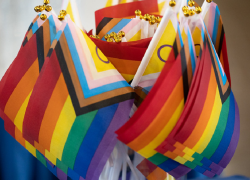At the U.S. Department of Labor, our mission is to promote and protect opportunity for all workers. We believe America is stronger and more competitive when we embrace diversity and all workers can apply their skills and experiences in inclusive workplaces. That’s why we proudly support and enforce policies that protect LGBTQ+ workers. Historically, there’s been a lot of solidarity between the movements for labor rights and for LGBTQ+ rights. This year as we celebrate Pride Month, we’re saluting several leaders whose fight for progress advanced both.
Frank Kameny
Frank Kameny wasn’t the first American to be fired for being gay – but he was the first to fight back all the way to the Supreme Court. Kameny was a WWII veteran and an astronomer for the U.S. Army Map Service in the 1950s, but despite the importance of his skills during the Space Race, he was barred from federal employment. Kameny fought the decision, and when the Supreme Court denied his petition, he continued to fight discrimination in the federal government. He co-founded the first gay rights organization in Washington, D.C., and organized one of America’s first gay rights protests, picketing the White House in 1965. He helped file lawsuits for other federal workers who were fired for their sexual orientation, eventually leading to rulings that forced the government to change its hiring policies. His advocacy improved working conditions for generations of LGBTQ+ workers around the nation.
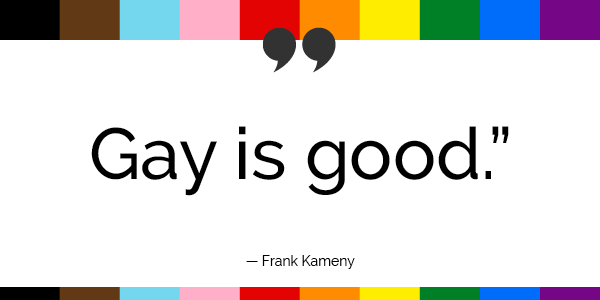
Bayard Rustin
Bayard Rustin was a talented and courageous civil rights leader. Born in 1912, Rustin was an openly gay advocate for labor, civil and human rights. He was a chief organizer of the March on Washington for Jobs and Freedom, though his contributions were downplayed at the time because of his sexual orientation. Like A. Philip Randolph, with whom he worked closely, Rustin believed civil rights and worker rights were inseparable.
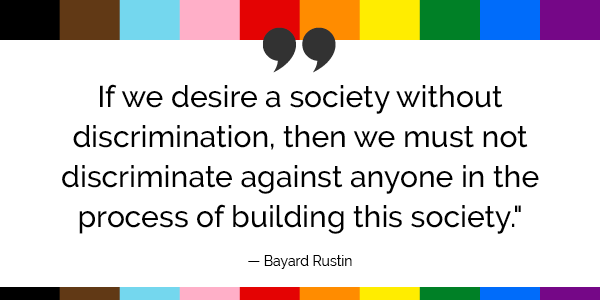
Harvey Milk
Harvey Milk was one of the first openly gay Americans elected to public office. A small business owner, he became active in San Francisco’s gay rights movement, and encouraged gay rights groups to coordinate with labor activists. Working together, they defeated the discriminatory Proposition 6, which would have banned people who were gay or lesbian from working in public schools, and successfully boycotted anti-union and anti-gay practices by Coors Brewing Co. Milk was assassinated within a year of his election, but his advocacy work and coalition building were honored with a Medal of Honor in 2009.
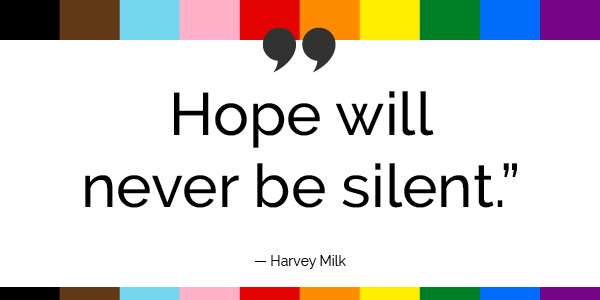
Irene Soloway
Irene Soloway was a carpenter who advocated for women in the trades, both to eliminate discrimination and to increase their representation. As a lesbian in New York City’s carpentry industry starting in the 1970s, she made it a priority to educate other members of the Carpenters Union about gender and race issues. She also was a founding member of United Tradeswomen, an organization that provided support to women and encouraged their participation in apprenticeships.
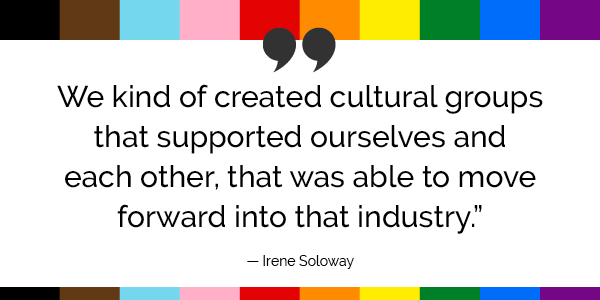
Joni Christian
In 1975, Christian was an assembly line worker for General Motors, a member of the United Auto Workers, and undergoing hormone therapy while planning for gender confirmation surgery. When she returned to work after her surgery, her coworkers harassed her and petitioned to keep her out of GM’s women’s restrooms. With UAW’s support, she sued GM, leading to a settlement and better working conditions. Years later, Christian credited GM and the union for making it possible to change her life.
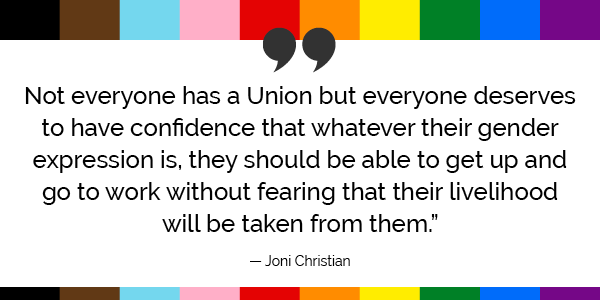
Laura McGinnis is a public affairs specialist in the U.S. Department of Labor.

 U.S. Department of Labor Blog
U.S. Department of Labor Blog
